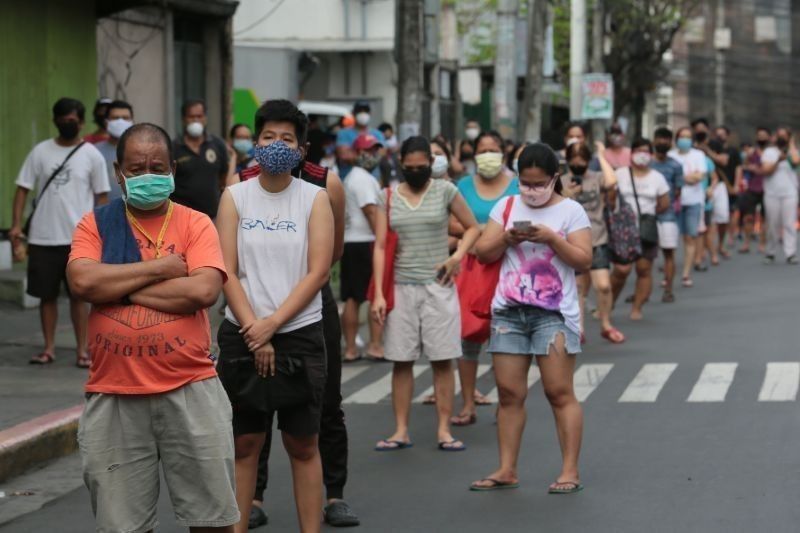Age restrictions for tourism relaxed further in MGCQ areas

MANILA, Philippines — Age restrictions have been eased further for people traveling for tourism activities in areas under modified general community quarantine (MGCQ), allowing those aged below 15 or above 65 to enjoy the outdoors, subject to certain guidelines.
The new order is contained in Resolution No. 84 issued by the Inter-Agency Task Force for the Management of Emerging Infectious Diseases (IATF) last Thursday and released to mass media yesterday.
“Finally, age restrictions, for those below 15 years old and those who are over 65 years old under modified general community quarantine areas, who are traveling for tourism purposes may be relaxed upon the determination of the LGUs (local government units),” the IATF said.
Under the resolution, the Departments of Tourism (DOT), of Health (DOH) and of the Interior and Local Government (DILG) shall issue specific guidelines on relaxing age restrictions with respect to COVID-19 protocols.
The last IATF order on easing age restrictions for traveling was issued on Oct. 15 and allowed individuals aged between 15 and 65 to go out for various activities, including tourism.
General community quarantine (GCQ) is imposed in the National Capital Region (NCR or Metro Manila), Batangas and Lanao del Sur provinces, and the cities of Bacolod, Iloilo, Tacloban and Iligan until Nov. 30.
In a resolution dated Nov. 19, the IATF reverted Davao City to GCQ status due to a spike in COVID-19 cases. The rest of the country remains under the more relaxed MGCQ.
No more isolation area in flights
In Thursday’s resolution, the IATF also removed the requirement for airlines to reserve a portion of the aircraft cabin as an isolation area for suspected/ill passengers on board domestic flights.
Presidential spokesman Harry Roque Jr. said the IATF’s decision was based on the recommendation of the Department of Transportation (DOTr) and the Civil Aviation Authority of the Philippines (CAAP) with concurrence of the DOH.
He said the IATF had set the requirement based on available information at the time, and that more information available now on how COVID-19 is transmitted in closed settings has been considered in removing it.
Roque said there are now more improved health protocols from boarding to landing and the use of High Efficiency Particulate Air (HEPA) filters. Domestic flights are also of short duration and generally not exceeding 90 minutes.
He added that removing the requirement will not contravene World Health Organization and International Civil Aviation Organization guidelines and protocols.
Local airlines welcomed the decision with assurances of mitigating the risks as more seats open up for sale.
“The health and safety protocols that Philippine Airlines has put in place across all phases of the flight, the presence of HEPA filters in the aircraft, combined with passenger compliance to health test requirements, have collectively mitigated onboard risks,” Philippine Airlines spokesperson Cielo Villaluna said.
AirAsia Philippines spokesman Steve Dailisan said: “Our existing multi-layered approach on guest experience from check-in to arrival sufficiently mitigates the risk which the last three row vacant rule previously intended to address.”
Both airlines hoped the decision helps rebuild confidence in air travel.
Protocols relaxed for emergencies
To allow faster emergency response to areas devastated by recent typhoons, health protocols enforced on airline crews have also been relaxed under IATF’s latest resolution.
The IATF has directed LGUs “to relax entry protocols such as test-upon-arrival requirement imposed upon airline crew layovers/positioning due to emergency situations which include typhoons, volcanic activities, diversions and emergency landings and other similar unforeseen and time-sensitive evacuations.”
The resolution also allows airline crew members to temporarily billet in hotels under a “bubble” concept supervised by the LGUs.
For this purpose, the IATF directed the DILG to coordinate and relay the order to all LGUs to “align their health entry protocols for this limited purpose.”
Meanwhile, the Subic Bay Metropolitan Authority is now authorized to set up a corporate jet flight maintenance and crew layover hub at the Subic Special Economic and Freeport Zone under a strict “bubble” concept.
The government has retained the need to present visa and work permit requirements for the people involved in these operations.
In the same resolution, the IATF also ruled that foreign nationals with visas issued by the Bureau of Immigration pursuant to Section 9(d) of Commonwealth Act No. 613, as amended, and those with visas issued by the authority of the Freeport Area of Bataan, Cagayan Economic Zone Authority and Clark Development Corp. may be allowed entry into the Philippines beginning Nov. 1.
Onsite FO exams, BSP survey get IATF nod
In another development, the IATF resolution authorized the onsite conduct of the 2020 Foreign Service Officer Examinations on Dec. 15 to 17, provided that only 30 percent seating capacity for any given venue is observed.
In so doing, the IATF pushed for the adoption of guidelines for the conduct of onsite, written, oral and practical specialty and subspecialty examinations issued by the Philippine Medical Association (PMA).
“Provided, that a PMA representative should be present during the conduct of such examinations to ensure and enforce compliance with said guidelines. Provided, further, that specialty/subspecialty divisions or societies conducting the same must designate persons who will comprise and function as an epidemiology and surveillance,” it said.
The IATF also provided that “no waiver of liability or COVID-19 testing shall be required of examinees subject to strict compliance with minimum public health standards for the duration of activities.”
The PMA shall be required to coordinate the schedule of examination as well as the prospective number of examinees with the IATF.
Meanwhile, the conduct of Bangko Sentral ng Pilipinas (BSP)’s nationwide Consumer Payments Survey has also been allowed by the IATF, but also subject to conditions. – Richmond Mercurio
- Latest
- Trending

































